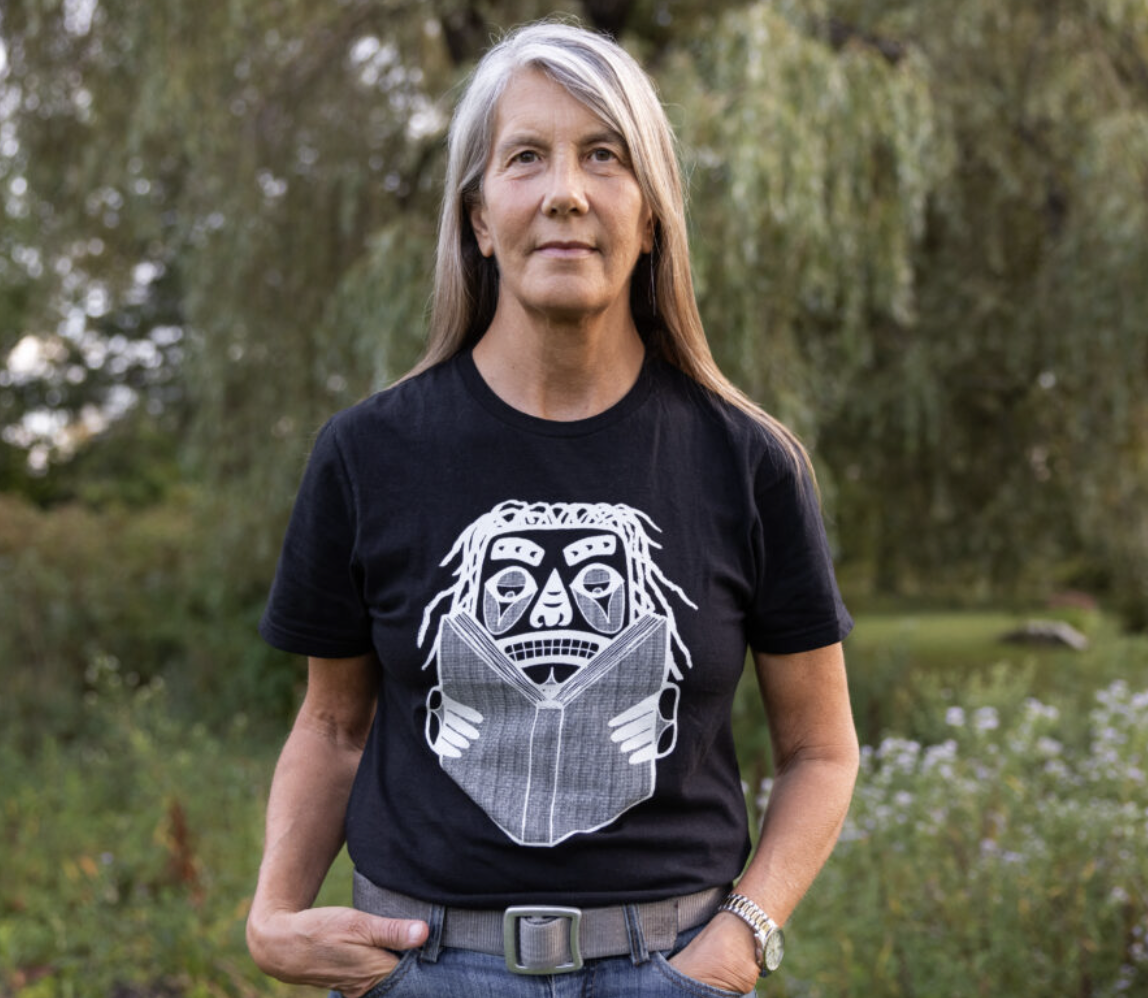
- Details
- By Kaili Berg
Margaret Wickens Pearce, a cartographer and Clark University alumna, has been named a 2025 MacArthur Fellow by the John D. and Catherine T. MacArthur Foundation.
Pearce, a citizen of the Citizen Potawatomi Nation, is known for creating maps that center Indigenous understandings of land and place. Her work brings visibility to Indigenous stories and knowledge that have often been erased from traditional maps.
“I feel very moved to be recognized,” Pearce said in a press release.
The MacArthur Fellowship, often called the “genius grant,” honors creative individuals who show exceptional originality and dedication. Each recipient receives an $800,000 award with no restrictions on how it can be used.
Pearce earned both her master’s and doctoral degrees in geography from Clark University’s Graduate School of Geography, now part of the School of Climate, Environment, and Society.
She first discovered her passion for cartography at Hampshire College, where a single class sparked her lifelong fascination with maps as a way to tell stories.
Pearce runs Studio 1:1 in Rockland, Maine, located on Penobscot traditional territory, where she collaborates with Indigenous communities to bring their histories and languages to life through maps.
“Please join me in congratulating Dr. Pearce for her achievement, commitment to making our world a better place, and representing Clark so well,” Clark University President David Fithian said in a press release.
Pearce’s 2008 project, “They Would Not Take Me There,” co-created with other scholars, reimagines the landscapes explored by Samuel de Champlain in the 1600s, incorporating Native place names and imagined dialogue from First Nations people to reflect their perspectives.
In 2017, her map “Coming Home to Indigenous Place Names in Canada” restored traditional Indigenous names to locations across Canada, created with input and permission from hundreds of communities.
Pearce also contributed to the 2020 investigative project “Land-Grab Universities,” which visualized how land taken from tribal nations was used to fund more than 50 U.S. colleges and universities, a stark reminder of the ongoing legacy of dispossession in higher education.
Her current project, Mississippi Dialogues, is a collaboration with tribal nations to reimagine the Mississippi River through Indigenous knowledge and environmental stewardship.
“I feel a responsibility to use the skills and the dedication I have to make change wherever I can,” Pearce said.
More Stories Like This
Native News Weekly (August 25, 2024): D.C. BriefsUS Presidents in Their Own Words Concerning American Indians
Native News Weekly (February 15, 2026): D.C. Briefs
DHS Secretary Noem Tells Tribes ICE Does Not Target Native Americans
Native News Online Marks 15 Years of Warrior Journalism
Help us defend tribal sovereignty.
At Native News Online, our mission is rooted in telling the stories that strengthen sovereignty and uplift Indigenous voices — not just at year’s end, but every single day.
Because of your generosity last year, we were able to keep our reporters on the ground in tribal communities, at national gatherings and in the halls of Congress — covering the issues that matter most to Indian Country: sovereignty, culture, education, health and economic opportunity.
That support sustained us through a tough year in 2025. Now, as we look to the year ahead, we need your help right now to ensure warrior journalism remains strong — reporting that defends tribal sovereignty, amplifies Native truth, and holds power accountable.
 The stakes couldn't be higher. Your support keeps Native voices heard, Native stories told and Native sovereignty defended.
The stakes couldn't be higher. Your support keeps Native voices heard, Native stories told and Native sovereignty defended.
Stand with Warrior Journalism today.
Levi Rickert (Potawatomi), Editor & Publisher


